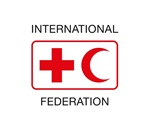Providing migrants with a neutral and known place where they can access information.
The Russian Red Cross provides counselling and information services for migrants in offices located at the Passport and Visa Service office in Moscow and at the Federal Migration Services office in St. Petersburg. Migrants can visit these offices to receive legal and medical information. Services provided include: (a) support with filling government applications; (b) explanations on Russian migration legislature; and (c) information on how to access basic medical and social services. Migrants can also use a free hotline to contact the offices to receive consultations. Leaflets are widely distributed to provide awareness about the existence of the migrant counselling offices and the services they provide. Migrants have said that they find it more comfortable to engage with the Red Cross offices. This trust allows the Red Cross to smooth tensions, allay fears and encourage migrants to comply with Russian legislation on migration. Mobile consultations for migrants in more remote parts of the country were started in 2015 and reached 600 people. However, the mobile consultation initiative has been constrained by lack of funding.
In Australia, Red Cross Hubs are migrant resource centres that provide migrants with on-the-spot support on a range of issues. They provide a central, welcoming space that links people with relevant Red Cross programmes and support (e.g., linking to caseworkers and to emergency relief). They provide relevant information, referrals and services. Hubs are located in every capital city across Australia and in some regional areas and provide support to vulnerable migrants.
The offices in Moscow and St. Petersburg provide an average of 14,000 consultations annually.
Design. [P1] Focuses on the informational needs of migrants in Russia.
Implementation. [P6] Refers migrants to the services of other service providers.
- The most important factor contributing to the success of information centres is wide publicity about the existence of the service.
- Inclusion of easy ways to access information, such as hotlines, significantly increased the reach and impact of the Russian migrant counselling offices.
Smart practices
Smart practices report and database survey
About the report
People migrate in pursuit of a better life for themselves and their families. As described in the International Federation of Red Cross and Red Crescent Societies’ (IFRC) Policy on Migration, “migrants are persons who leave or flee their habitual residence to go to new places – usually abroad – to seek opportunities or safer and better prospects.
Read more
About the International Federation

